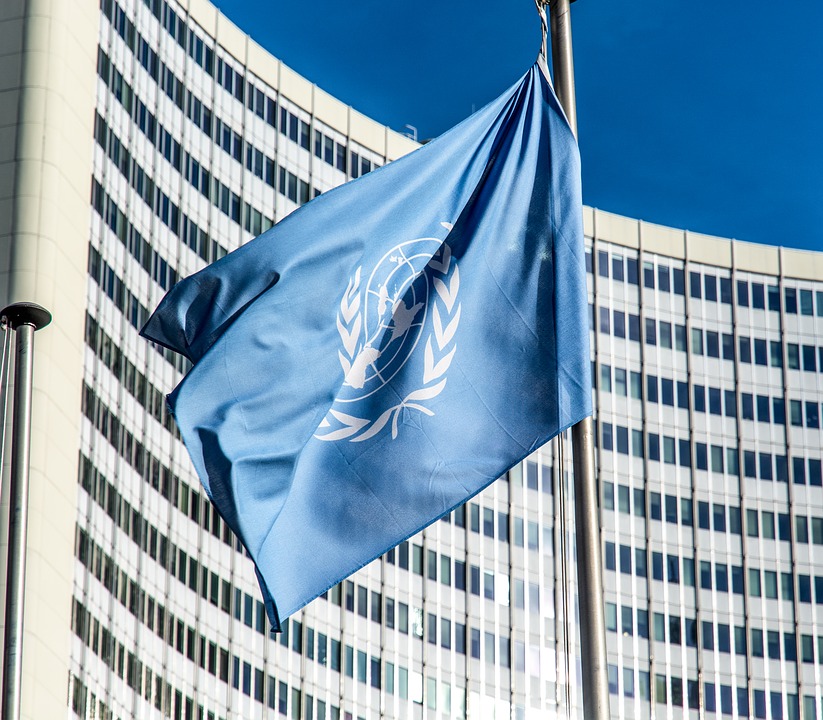Let's welcome the Scottish Government's move on family income. But remember: child poverty is not inevitable – it is always a political choice
Tomorrow, the UN Rapporteur presents his final report on extreme poverty in Britain. Responding to Call 2 of our 25 Calls campaign, the SCVO's Sheghley Ogilvie agrees with his findings, welcomes our government's pledge to bring forward the Scottish Child Payment, and proposes next steps that must be taken to achieve our shared goals
Call 2: Make it your business to tackle child poverty
The UN Special Rapporteur on extreme poverty and human rights, Philip Alston, will tomorrow (Friday 28 June 2019), present his final report on extreme poverty and human rights in the UK, to the UN Human Rights Council in Geneva. The report is a scathing denunciation of austerity Britain, in which the Special Rapporteur condemns the UK Government for adopting a range of policies that both fail the most vulnerable and are incompatible with human rights.
The Rapporteur highlights that as a result of the policy changes since 2010 progress on child poverty has been unravelling. Unbelievably, it is projected that child poverty rates across the UK will reach close to 40 per cent by 2021. In Scotland, despite the reintroduction of the statutory child poverty targets in 2017 (after the UK Government abolished them a year before) the Scottish Government’s own forecasts predict that without action, the child poverty rate will rise to 35 per cent by 2030.
Similarly, after analysing the Scottish Government’s December budget, the independent Poverty and Inequality Commission warned that without significant investment the Scottish government will miss its own child poverty targets (click to read). Action is urgently needed if we are to ensure that every child really does have every chance.
This week the Scottish Government recognised the scale and urgency of the challenge. Following intense pressure from the third sector and wider civic society, the Cabinet Secretary for Communities and Local Government, Aileen Campbell MSP, announced the Scottish Child Payment (formerly known as the Income Supplement). The payment of £10 per week will be delivered by Social Security Scotland to eligible children under 16 by 2022.
Encouragingly, after over 70 organisations and leaders from across Scottish society wrote to the First Minister to highlighting stark child poverty projections (click to read), the announcement included a commitment to deliver payments to families with children under the age of six by 2020/21, the end of this parliamentary term. One third of Scottish children are expected to be eligible, highlighting both a real commitment from the Scottish Government to deliver on its child poverty targets – but also the scale of the challenge.
In Scotland, SCVO, like the Rapporteur and colleagues across the third sector, recognise that the Scottish Government has tried to mitigate some of the worst impacts of Westminster austerity policy. Indeed, the Tackling Child Poverty Delivery Plan and the Scottish Child Payment are examples of this. We also recognise that the Scottish Government, like other devolved administrations, has experienced significant reductions in block grant funding and that there are constitutional limits on the government’s ability to raise revenue.
Despite this, the Scottish Government can and must go further to create a co-ordinated vision to tackle the poverty and inequality, realise rights, and achieve the Sustainable Development Goals (SDGs).
'The UK is the world’s fifth largest economy, as such austerity has been driven not from economic necessity, but to justify ideologically driven poverty-related policy'.
The report lays bare the reality of poverty for children, families, and communities across Scotland and the UK; battles with hunger, struggles to pay their bills, and, for those trapped in poverty in the long-term, the impact on their health, wellbeing, and life chances. Most damning of all is the recognition that the UK is the world’s fifth largest economy, and austerity has been driven not from economic necessity, but to justify ideologically-driven policy. Poverty, the Rapporteur says, is a political choice. Shamefully, this political choice effects 14 million people in the UK, one fifth of our population.
Action must be taken to:
- Include a robust reference to international standards human rights standards in the Social Security (Scotland) Act, an omission that did not go unnoticed by the Rapporteur who described it as a significant accountability gap.
- Strengthen the Scottish Business Pledge, so that all businesses are required to commit to it, or as a minimum the Living Wage, in order to receive public contracts.
- Redesign Fair Start Scotland to create person-centred rights-based services, rather than focusing solely on getting people into work as quickly as possible.
- Urgently address issues around the European Structural and Investment Fund (ESIF) monies, which only last year, despite the poverty experienced by communities across Scotland, the Scottish Government failed to spend in real terms due to poor management. As a result, the European Commission has de-committed and asked for the return of millions of pounds that could have made a difference to the lives of children, families and communities across Scotland.
Introducing a universal basic income or a minimum income guarantee are also avenues that the Scottish Government can and should explore (though we recognise that the Scottish Government plan to support some basic income pilots). We must also recognise and value other contributions to society: carers, volunteers, learners, or activists, and adequately support them in these roles.
To fulfil the right to an adequate standard of living, people, families, and communities must have access to adequate and reliable incomes. To achieve this, urgent action is needed at a UK level to improve Universal Credit, scrap the benefit cap, and repeal the two-child limit.
The Rapporteur described child poverty in twenty-first century Britain as not just a disgrace, but a social calamity and an economic disaster. We must recognise that the poverty experienced by children, families, and communities across Scotland and the UK is not inevitable, it is a failure of government to fulfil the rights of their citizens. The Scottish Child Payment is hugely welcome and demonstrates what can be achieved when there is the political will to utilise devolved powers.
Social Security is not, however, the only tool through which the Scottish and UK governments can address poverty and realise rights. Together we must continue to challenge both the Scottish and the UK governments to go further to address poverty, deliver on rights, and achieve the Sustainable Development Goals (SDGs).
Sheghley Ogilvie is public affairs officer at the Scottish Council for Voluntary Organisations (SCVO). She is responding here to Call 2 of our 25 Calls campaign, by Professor John McKendrick
The UN Special Rapporteur on extreme poverty and human rights, Professor Philip Alston, is scheduled to present his UK report (click to read) to the UN Human Rights Council tomorrow afternoon (Friday 28 June).

About the author
Sheghley leads on a range of policy areas at SCVO, including social security
Find out moreCall 2, by John McKendrick
"Make it your business to tackle child poverty"
Click to read the full call25 Calls
Find out more about our campaign to improve children's lives and strengthen equality
Click to view the campaign
"The social safety net has been dismantled"
The UN Rapporteur has written a report on poverty and human rights in the UK
Click to read the report